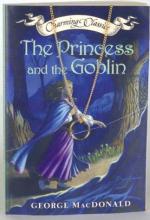|
This section contains 227 words (approx. 1 page at 300 words per page) |

|
Because the story is a spiritual fantasy in a fairy tale setting, it contains almost no social commentary. MacDonald dramatizes the process of a young developing mind's quest for truth. Error and failure are attributed to universal human nature, not to the corrupting influence of social attitudes and institutions. For instance, no manifestation of organized religion (except for one unrevealing reference to a parson), appears in the story, even though it has a religious theme. The only bit of class snobbery expressed by Lootie is outweighed by the princess's attitude, which values virtue over social status.
One might expect that a book written during the Victorian era would reflect the period's predominantly patriarchal values and show men as leaders and women as subjects to be protected. However, the story is relatively free from sexist assumptions. Curdie's mother keeps house in the traditional fashion, but she is...
|
This section contains 227 words (approx. 1 page at 300 words per page) |

|




